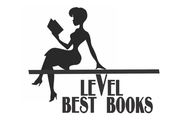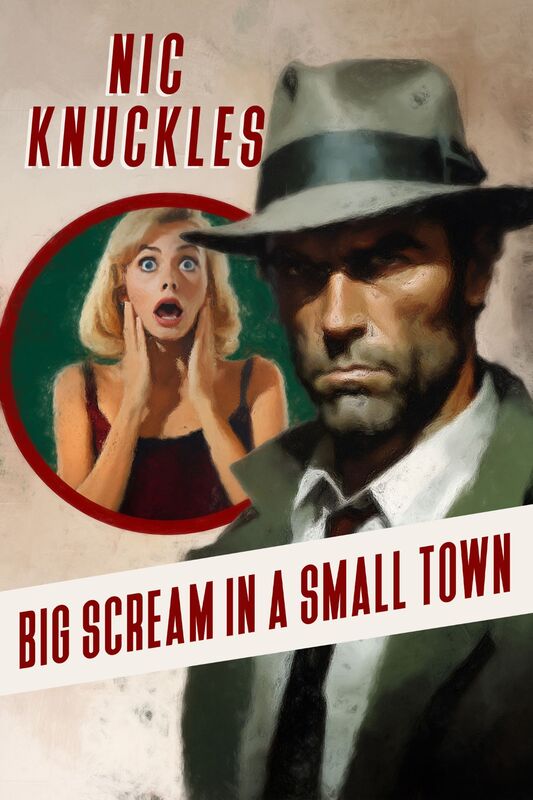|
By William Ade A rabbi, a priest, and a minister walk into a bar. Hearing someone speak that line, you might lean in, anticipating a good laugh. Maybe your stomach muscles tense, fearful you’re about to be offended. Your anxiety could be from wondering why you're failing to get the joke while everyone else rolls with laughter. Being funny is risky, but when you flop, the embarrassment subsides as soon as you leave the room. Writing funny, however, is more hazardous for a reputation because if it offends, it’s forever in print. A number of years ago, I created a character named Nic Knuckles, a caricature of noirish crime-solving protagonists like Philip Marlowe or Sam Spade. Nic twice starred in published short stories and once won me a hundred dollars in a humor contest. I didn't consider myself a writer of humor until my then-editor at Level Best Books (LBB), Harriette Sackler, commented on the subtle drollness in my first LBB book, Do It for Daisy. Perhaps Harriette was onto something, I thought, but I didn’t pursue the possibility. I had other fiction to write, and I wasn’t sure a character like Nic Knuckles could go 80,000 words and not grow tiresome. It wasn’t until I realized that my fellow Besties were just too darn good at writing crime and mystery stories that I changed my mind. I mean, come on, how could I stand out against so many talented writers of fantastic novels? I needed a niche, and perhaps I really could find a bigger audience by writing humorous crime mysteries. I pitched a series to LBB with Nic Knuckles as the continuing protagonist, and Harriette was all in, giving me a three-book contract in late 2022. (While it is suspicious that Harriette left Level Best Books soon after performing the developmental edit on the Nic Knuckles manuscript, I genuinely believe it was for the dogs.) Not that Nic wasn’t problematic from the start. The style I was emulating was dated and prone to misogyny. A few years ago, when I was workshopping a Nic Knuckles short story, a younger female member of my critique group pointed out that Nic’s use of the word dame to describe women was offensive. I made the change but wondered what my friends at Dames of Detection would’ve thought. That was a lesson learned. Humor is often generational, and yesterday's funny gag might be today's cringe-worthy faux pas. I’d always taken pride in my progressive politics and history of supporting the social causes of women and minorities. But I’m also an old white guy from the Midwest who has stuck his foot in his mouth more than a few times trying to be funny. Therefore, after I finished writing the first draft of Big Scream in a Small Town, employing a diversity of editors and beta readers was essential to keep me from unintentionally causing hurt. My developmental editor for the novel was a young woman with a great sense of humor who just as quickly pointed out gags that fell flat. My editor at LBB, Ms. Sackler, with her broad view of the current publishing environment, provided another defensive layer against tactlessness. Before submitting my final draft, I hired a sensitivity reader and asked the woman to scrub the manuscript again. The sensitivity reader was a good investment, and she identified a few remaining offenders. She wasn’t perfect, however. In the story, I mentioned that Nic Knuckles was a proud graduate of Bernie Madoff High School. The sensitivity reader thought I was disrespecting high school graduates and suggested I change it up. After I pointed out that having a school named after one of history’s greatest fraudsters was the gag, did she realize she missed the joke. Another lesson learned. Humor can be easily misconstrued, so be prepared to defend or defuse. The comedian and podcaster James Creviston talked about the difference between blue and clean comedy, pointing out the multiple variations of each. Although his experience was as a stand-up comedian, his observations were relevant to writing funny. “Clean comedy is a type of comedy that is free from profanity, sexual content, and other topics that may be considered inappropriate for all ages. It is often referred to as family-friendly comedy. Clean comedy can be further divided into four types: club clean, TV clean, church clean, and squeaky clean. Club clean is something that would not offend most people, with no cursing or sexual references. TV clean is comedy acceptable on network television, where innuendo is acceptable. Church clean is tight with no innuendo or hint of obscenity. Squeaky clean are jokes grade schoolers can tell each other.” I’d have to say the first draft manuscript of Nic Knuckles spouting his observations about his experiences was probably club-clean. After three layers of review encouraged me to kill several of my darlings, Big Scream in a Small Town now reads TV clean. Church clean, it’s not, and I'm good with that. Otherwise, Nic Knuckles would have no unique identity and not be humorous, just odd. Another thing I discovered in bringing Nic Knuckles to life was that some people would prefer to avoid mixing humor with their favorite genre. Big Scream in a Small Town is faithful to Richard Chandler's Ten Commandments of the Detective Story, and Nic Knuckles is the prototypical noir investigator, but presenting him as an American cousin of Inspector Clouseau was off-putting to some early readers. That awareness created a new concern. How do readers, thinking they just bought a classic crime noir, not feel cheated when I fail to deliver on that expectation? I hoped that authoring the book as Nic Knuckles would be sufficient a clue that the story was a parody. My promotional campaign is built around social media using short, funny videos underscoring Nic’s peculiar approach to solving crime. If that doesn’t do it, caveat emptor will have to be my defense. If you're going to write funny, write what you think is funny, but be aware of the risks. There’s a good chance there’s an audience with a similar sense of humor who’ll become loyal readers. Although I suspect the less clean or quirkier you are, the smaller the likely readership. How well will my sense of humor play with readers? I don’t know. Check with me in a year, and we can compare book sales. Then we’ll see whether I’m laughing or not. Hey, did you hear the one about the writer of cozy mysteries who didn't like cats or dogs? Yeah, I know. The premise is too unbelievable to be funny. William Ade was born and raised in a large family in small town Indiana during the fifties and sixties; an experience that strongly influences his writing. While attending graduate school at the University of Illinois, he met and married his wife, Cindy and following graduation, they headed to the East Coast. After settling in Northern Virginia, they raised two children into adulthood. Those years of love and life also influences many of his stories. Ade’s latest novel, written as Nic Knuckles, is Big Scream in a Small Town and is the first in the Nic Knuckles Collection published by Level Best Books (LBB). LBB also published his crime novel, Do It for Daisy in 2021. Other novels by the author includes, The Man Who Fixed Things (2023), Art of Absolution (2019), and the serialized The Inevitable Failure of Jonathan Golding (2022). His short story collection, No Time for His Nonsense was released in 2019. His short stories have appeared in Mysteries Unimagined, the Rind Literary Magazine, The Broken Plate, Black Fox Literary, Mindscapes Unimagined, and the 2018 and 2019 Best New England Crime Stories. His short story, Punch Drunk, will be part of the 2023 Chesapeake Crimes: Three Strikes – You’re Dead anthology.
3 Comments
|
Level Best AuthorsMusings from our Amazing Group of Authors Archives
July 2024
Categories
All
|
Level Best Books18100 Windsor Hill Rd
Olney MD 20832 |



 RSS Feed
RSS Feed